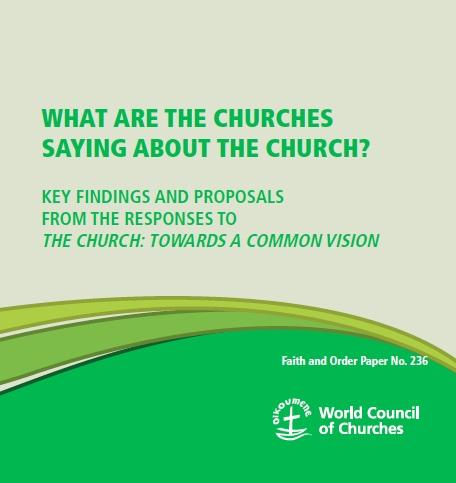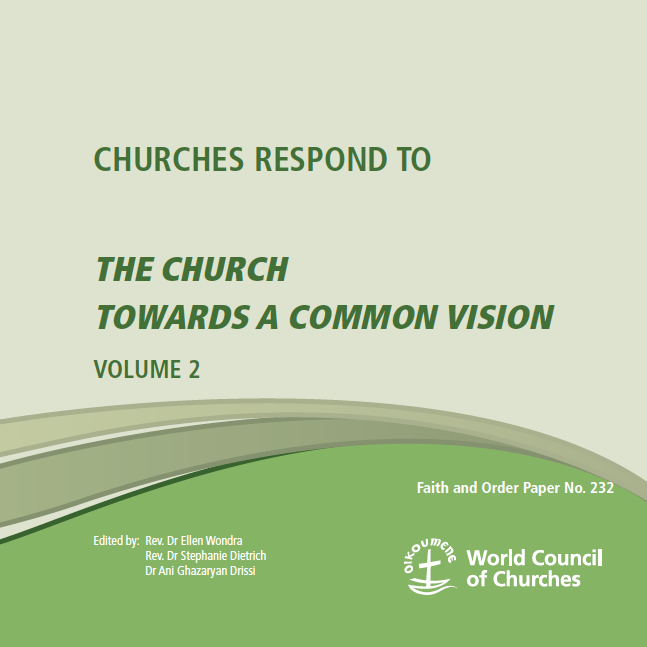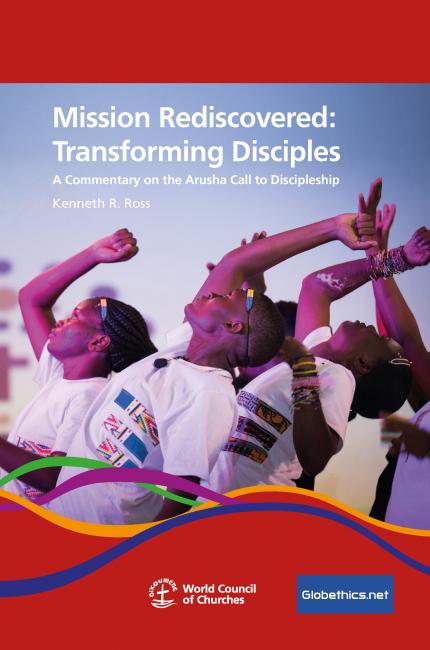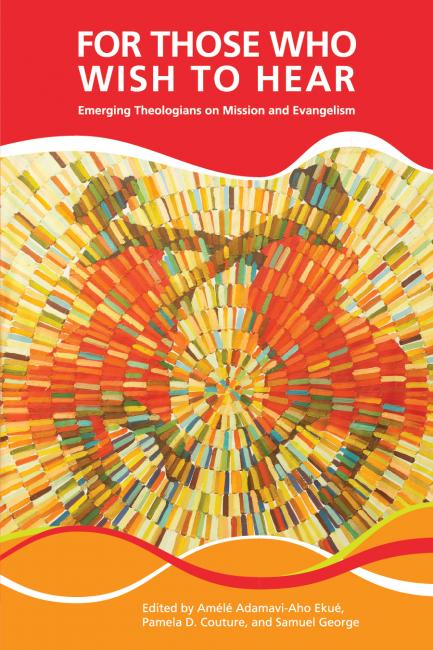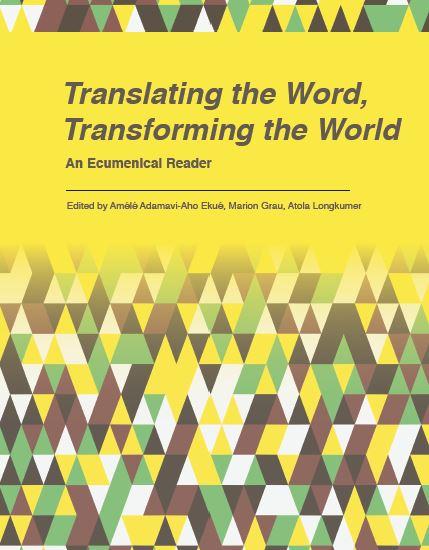Displaying 21 - 40 of 50
Key Findings and Proposals from the Responses to The Church: Towards a Common Vision
21 June 2021
Churches Respond To The Church: Towards A Common Vision Volume I
Faith and Order Paper No. 231
23 February 2021
Churches Respond To the Church: Towards a Common Vision Volume II
Faith and Order Paper No. 232
23 February 2021
Love and Witness
Proclaiming the Peace of the Lord Jesus Christ in a Religiously Plural World
18 January 2021
Mission Rediscovered: Transforming Disciples
A Commentary on the Arusha Call to Discipleship
02 December 2020
Called to Transforming Discipleship
Devotions from the World Council of Churches Conference on World Mission and Evangelism.
17 May 2019
Moving in the Spirit
Report of the World Council of Churches Conference on World Mission and Evangelism
17 May 2019
Arusha Report
17 May 2019
Current dialogue
18 December 2018
International Review of Mission
05 December 2017
Arusha Resources
16 November 2017
Growth in Agreement IV:
International Dialogue Texts and Agreed Statements, 2004–2014, Volumes 1 and 2
01 February 2017
